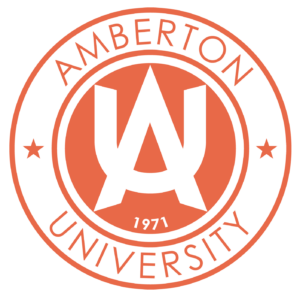In my experience over the past almost 50 years in the working world, “project management” is one of the most, if not the most, universal (ubiquitous) skill sets needed by individuals throughout their careers in all types of organizations.
We encounter “projects” called by many names in our personal and professional lives. My Mother used to post a “jobs (aka projects) list” on the refrigerator when I was a kid.
So whether we call it a job, a project, a program, an operation, an assignment, a campaign, a play, or something else, it still has all the characteristics of what we would know as a “project.”
Defining the Essence of a Project
We define a project as a: “unique venture with a beginning and an end, executed to one or more meet goals.” Or, slightly stated differently, “a temporary endeavor undertaken to create a unique product, service or result.”
So, a “project” would include cleaning out my garage, raising funds for my church’s youth program, building a software program to optimize my Amazon delivery routes, planning my course schedules for the academic semester, and much more.
Essential Skill Sets for Effective Project Management
We must bring specific skill sets to bear upon the work contemplated, whatever the “project” may be.
- We must determine what we intend to accomplish; what is our end objective?
- We have to understand what work must be done to reach that goal.
- We have to identify and gather the resources needed to accomplish that work.
- Somebody (or a team of somebodies) has to plan and execute the work required to accomplish the project.
- We need to plan (as best we can) how to handle changes that will probably come up as the project progresses.
- We need to decide what it means to be “done”; i.e., how do we determine that we have accomplished our goal for the project? Let’s take a relatively simple example to demonstrate how these skill sets come into play in executing a “project.”
I need to clean out my garage! I’ve stuff stacked in there that’s been there for 25 years, and it’s. It’s to get busy and get my garage straightened up.
Skill Set #1
Define the end objective(s): My initial thought was that I needed to “clean out my garage,” but really, my actual objective is not only to clean that space but to reorganize (straighten up) the remaining contents of the garage. That latter objective is a bigger one than just cleaning the garage.
As a result, the “scope of work” has changed because I altered the end objective. Because I changed the end objective, the definition of what it means to be “done” also changed.
Skill Set #2
Top-down decomposition of work: Now that I have decided to clean AND reorganize my garage, I can figure out what work will be required to accomplish those objectives.
This process follows the adage: “How do you eat an elephant? One bite at a time.” The prominent two big pieces of work are:
- Clean out the garage (contents)
- Reorganize (straighten up) the remaining contents of the garage.
Next, I have to break down each of these two “big” pieces into smaller segments of work; i.e., “clean out the garage” means that I need to sort the garage contents into three piles: stuff to throw away, stuff to give away; and stuff to keep.
Then, I need to break each of these down into smaller pieces of work or tasks.
For example, “stuff to give away” might break down into gather: stuff to give to our kids, stuff to give to Goodwill, and stuff to give to the Library. I would continue this work breakdown process until I have all known pieces of work broken down into tasks that would take about four hours to accomplish.
Skill Set #3
Define the resources required: Besides my effort (time), I need to think about other resources I suspect I’ll need to accomplish this project.
For example, I’ll probably need a bunch of plastic tubs to store the contents I want to keep after cleaning and reorganizing my garage. That means money: maybe 20 tubs costing $5 each for $100. I may need to rent a small cargo truck to haul stuff to Goodwill. That’s another $100.
I will think through each piece of work to estimate what resources will be required to execute that piece of work so I can plan for all necessary expenditures.
Skill Set #4
Execute the project: Obviously, somebody (me) better get to work if this project is ever going to get done. There are a couple of ways I can plan out my work schedule. Since I think I know what must be done, I can use a sequential time plan to lay out my work in a logical series of steps (tasks) based on the availability of my time over the next month or so.
In this scenario, I might start by sorting the boxes on the north side of the garage; then, I’ll sort the contents of my filing cabinets and the stuff I have stored on the shelves. After sorting, I’ll take the give-away things to Goodwill and move the trash to the curb for city pickup.
The other approach is to tackle the work in “sprints”, first addressing the most valuable piece(s) of work, followed by other pieces of work in descending order of value. In this scenario, I would tackle the boxes stored on the north side of the garage as my first sprint since getting that done has the highest value to me.
In that sprint, I would sort all the stuff in that area, move the trash to the curb, take the giveaway items to Goodwill, and re-pack the contents I want to keep into new tubs for my reorganization effort.
Then, I would move to the second sprint, which would do the same tasks for the filing cabinets. I would continue working in sprints until the project was done.
Skill Set #5
Accommodate refinement: Change always happens! Right?
I need to be thinking about potential changes that might come up that would alter the scope of work I have currently planned. For example, what would I do to accommodate my secret dream of building a woodworking shop in my garage? Or, how about following my other dream of buying a new 2025 Z06 Corvette?
Both would be great fun, but they would drastically alter my work plans for cleaning and reorganizing my garage. Maybe I’ll start a “GoFundMe” page!
Skill Set #6
Assess whether I am “done”? Assuming I stick with my original plan, how will I determine when I am “done”? Am I done when the garage is clean, trash is thrown away, giveaway stuff is delivered to Goodwill, and what I want to keep is re-packed into plastic tubs? Or, am I done when all of those tasks are completed AND the contents of the garage are logically reorganized, packed in tubs, properly labeled, and stored neatly on the shelves in my garage (and we can park our cars in the garage!)?
For me, the latter represents the vision I have in my mind’s eye as to what “done” really means.
I hope you have enjoyed this little episode designed to convince you that everyone needs to develop essential project management skill sets to successfully manage all the big and little projects, jobs, programs, operations, assignments, campaigns, etc., that are bound to come your way personally and professionally during your life and career.
Enjoy!










